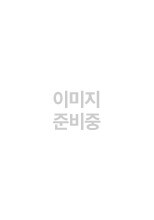Cho Hae-il (18 April 1941 – 19 June 2020) was a South Korean writer.
Life
Cho Hae-il was born Cho Hae-ryong in Manchukuo in 1941. After the liberation of Korea his family returned to Seoul, and five years later the Korean War began. During the war his family joined the stream of refugees who retreated to Busan, only returning to Seoul in 1954 after the cessation of hostilities. Cho entered Posung High School where he entered the creative writing club. In 1960 he lived through the student revolution of April 19, about which he said made him very proud for the achievements of others and ashamed of his own failure to participate.
In 1961 he entered Kyunghee University, where he majored in Korean literature and met Hwang Sun-Won, one of the greatest senior writers in Korea. Graduating in 1966, he served his mandatory military service in various roles. Upon his discharge from the service, he began writing. He made his literary debut with "Maeil Jungneun Saram" (매일 죽는 사람 The Man Who Dies Every Day), which won first prize in the JoongAng Ilbo New Writer’s Contest in 1970.
When his writing career began to wind down in the late 80s, Cho moved to teaching creative writing at Kyunghee University.
Writing
Cho made his literary debut with "Maeil Jungneun Saram" in 1970. Over the next few years Cho was quite prolific, publishing at least twelve short stories and the novella Amerika (아메리카 America) in the years up to 1974. In 1976 Cho published Gyeoul Yeoja (겨울 여자 Winter Woman), which went on to achieve massive success, including adaptation as a feature film, and made Cho a household name. From 1974 to 1986, Cho wrote steadily, both short stories and newspaper serials.
Cho's work often focuses on the weaknesses of individuals and societies. His novella America tells the story of a man and local society deformed by the presence of U.S. troops in South Korea. His short story "Musoetal" (무쇠탈 The Iron Mask) tells the story of a couple attacked, and the wife beaten, while "Simnihakjadeul" (심리학자들 The Psychologists) explores the dynamics of violence in the confines of a bus.
Cho Haeil wurde als Cho Hae-ryong am 18. April 1941 in China geboren. 1945 kehrte seine Familie nach Seoul zurück. Er studierte an der Kyung Hee University Koreanische Sprache und Literatur. Dort ist er gegenwärtig als Professor für koreanische Literatur tätig.[1] Er debütierte im Jahr 1970 mit der Kurzgeschichte Täglich Sterbender (매일 죽는 사람), die bei einem Literaturwettbewerb der JoongAng Ilbo ausgewählt wurde. Die Charaktere in Cho Haeils Erzählungen kommen aus allen Bereichen des Lebens und der Autor versucht durch die Darstellung gewöhnlicher Aspekte des Lebens gesellschaftliche Ungerechtigkeit und Irrationalität zu parodieren. So verwendet er unter anderem in Im Kkŏkchŏng (임꺽정) Elemente des historischen Romans, um die gegenwärtige Gesellschaft darzustellen. Cho Haeils beliebte Werke Winterfrau (겨울여자) und Uyoil (우요일 雨曜日), die zunächst als Fortsetzungsromane in Zeitungen veröffentlicht wurden, beschäftigen sich mit der menschlichen Psyche.[2] Die Erzählung Amerika, welche auch ins Englische übersetzt wurde, handelt von den Erlebnissen eines Mannes, der gerade seinen Wehrdienst beendet hat und im Bordell seines Onkels, im Rotlichtbezirk nahe einer US-Militärbasis, als Türsteher aushilft. Er wird mit dem dortigen Chaos von Rassismus, Mord, etc. konfrontiert und sein eigenes Leben gerät ebenfalls in einen chaotischen Zustand.
조해일(1941~2020)은 대한민국의 소설가다.
생애
조해일은 1941년 만주에서 태어났다. 1945년 해방 이후 귀국해 서울에서 성장했다. 보성고등학교를 졸업하고 경희대학교 국어국문과와 동 대학원을 졸업했다. 1970년 《중앙일보》 신춘문예에 단편 〈매일 죽는 사람〉이 당선되어 작품 활동을 시작했다. 첫 소설집 《아메리카》를 1974년에 출간한 이후 다수의 단편과 장편을 출간했다.
조해일은 대중성과 문학성, 사회 참여와 비판 의식이 적절히 잘 조화를 이루는 작품을 고민했으며, 교조적이고 극단적인 경향을 꺼렸다. 1980년대 후반부터는 경희대학교 국어국문과 교수로 일하며 후학을 양성하는데 전념했다.
조해일은 소설만 쓴 것이 아니라 한국사회의 모순에 대해서 침묵하지 않았는데, 경희대에서 정년퇴직한 뒤에도 광화문 촛불집회(2016)와 세월호 유가족 지지 농성(2014), 사회적파업연대기금 투쟁 현장과 문화제 등에 적극적으로 참여했고, SNS(페이스북)를 통해 사회적 발언을 멈추지 않았다. 2020년 6월 세상을 떠났다.
작품 세계
조해일은 섬세한 심리 묘사와 탄탄한 구성 등으로 대중성과 문학성에서 평단과 독자들로부터 높은 평가를 받았다. 그의 작품들에서는 사회 비판 의식이 중요한 주제로 다뤄지는데, 사회 속에서 다양한 형태로 발생하는 폭력을 우화의 형식을 빌려 형상화했다. 또한 도시화로 인해 빠르고 화려하게 변한 도시의 겉모습과 그 뒤에 숨겨진 가난하고 소외된 이들의 고통에 주목하여 작품의 주제로 삼았다.
단편 〈뿔〉(1972)은 조해일이 《문학과지성》(2017년 봄호, 통권7호)에 발표한 작품으로, 잿빛 풍경을 배경으로 빛나는 생명력을 지닌 주인공 지게꾼의 모습을 표현한다. 게다가 모두가 앞만 보며 질주하는 세상에서 역행하는 지게꾼을 통해 삶의 조건이 무엇인지 되묻고 있다.
신문연재 후 단행본으로 출간된 장편소설 《겨울여자》(1976)와 《우요일(雨曜日》(1977)은 인간 심리에 대한 섬세한 묘사와 유려한 문체로 대중들의 인기를 끌었다.
1970년대 대표적인 소설 중의 한 편인 《겨울여자》는 1975년 1월부터 12월까지 《중앙일보》에 연재되었고, 1977년 영화로 만들어져 흥행에 성공했다. 이 작품은 남성중심의 권위적인 가부장제를 비판하고 있지만, 그 대안으로 제시된 것이 여성의 헌신과 모성 이데올로기라는 점에서 문제적인 작품이다.
소설집 《아메리카》(1974)의 표제작 중편 <아메리카>는 경기도 동두천의 미군부대 기지촌 여성의 죽음을 계기로 기지촌 여성들의 소외된 삶과 뒤틀린 한·미 관계를 전면에 내세운 작품이다. 이 작품은 특히 폭력과 분단 등 한국사회를 지배하는 문제들을 추상적으로 파악하지 않고 구체적으로 이해하고 묘사했다는 점에서 문제적인 작품으로 높은 평가를 받고 있다.
《임꺽정에 관한 일곱 개의 이야기》(1986)는 조해일이 1973년부터 1986년까지 발표한 연작소설을 묶어 출간한 것이다. 시대의 영웅이었던 임꺽정에 관한 일곱 개의 이야기들을 통해 당시한국 사회에서 말하기 어려웠던 여러 가지 문제들을 소설 속에서 풍자적으로 보여주고 있다.야만적 정권에 봉사하던 지식 집단에 대한 분노, 1980년 광주에 대한 분노와 허탈감을 담았다. 조해일은 이 작품에서 영웅 임꺽정의 서사를 따르기보다는 그를 통해 모순된 한국 사회의 모습을 보여주었다.
현실 풍자적이고 비판적인 작품을 계속 발표한 조해일은 다양한 계층의 소외되고 가난한 인물을 주인공으로 삼아, 현실의 부조리와 불합리를 형상화했다.
주요 작품
1) 소설집
《아메리카》, 민음사, 1974(개정판, 고려원, 1987/ 개정판, 책세상, 2007).
《왕십리》, 솔, 1975.
《매일 죽는 사람》, 서음출판사, 1976.
《우요일》, 지식산업사, 1977.
《엑스》, 현암사, 1982.
《임꺽정에 관한 일곱 개의 이야기》, 1986(개정판, 책세상, 2000).
《무쇠탈》, 솔출판사, 1991.
2) 장편소설
《겨울여자(상/하)》, 문학과지성사, 1976(개정판, 솔출판사, 1991).
《지붕 위의 남자》, 열화당, 1977.
《갈 수 없는 나라》, 삼조사, 1979(개정판, 고려원, 1983).
수상 내역
2001년 제3회 백석문학상
1990년 대한민국문학상(평론부문)




